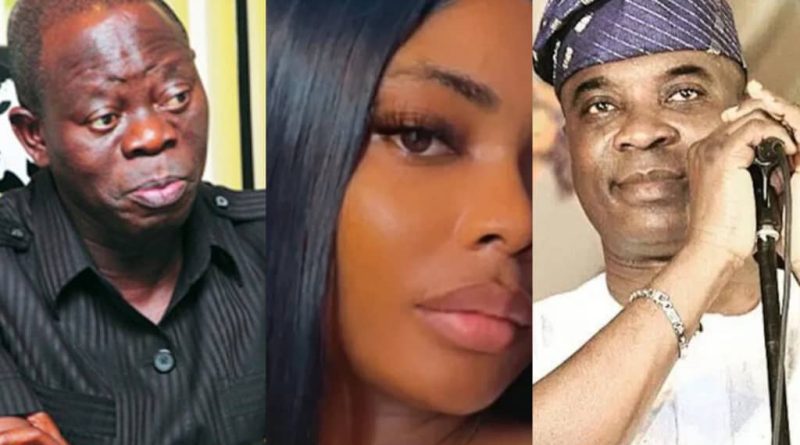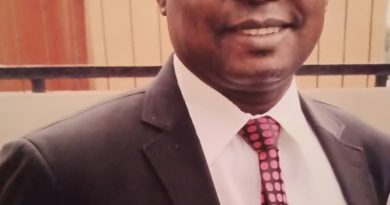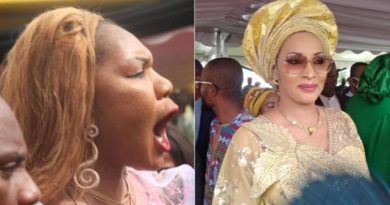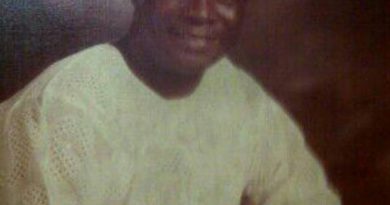Scapegoats, Sacred Cows In Nigeria’s Orwellian World:Lessons From Kwam (Oshio), Kwam 1 (Wasiu), And Kwam 2 (Comfort)
By Senator Iroegbu
In today’s Nigeria, the law has two faces. On one side, it is timid and deferential, almost invisible in the presence of the powerful. Conversely, it is swift, merciless, and loud when unleashed on the weak. This selective application of justice—laid bare by the recent cases of Senator Adams Oshiomhole (“Kwam”), King Wasiu Ayinde Marshal (“Kwam 1”), and Ms. Comfort Emmanson (“Kwam 2”)—offers a textbook illustration of our Orwellian reality.
We live in a country with an impressive body of laws on paper—laws befitting any modern state—yet their application often hovers dangerously close to a Hobbesian state of nature, where “might is right” and survival is the ultimate law. It is a system where lawbreakers with power, money, or influence are coddled, while the powerless are crushed to set an example.
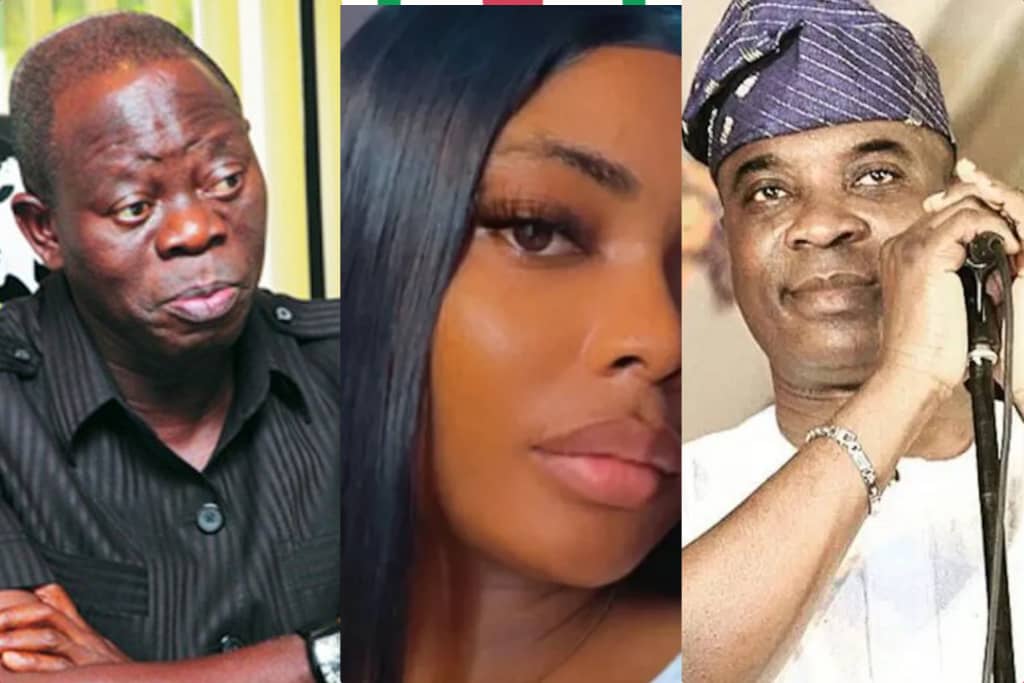
In George Orwell’s Animal Farm, all animals are equal—until some become “more equal than others.” In Nigeria, the law is not absent; it is selective. It bows to privilege but pounces on vulnerability. Belong to the right political camp, speak the correct language, wield the right influence, or command the right network of enforcers, and the law becomes malleable, even indulgent. Find yourself in the wrong camp, stripped of connections, and you will be ridiculed, vilified, and punished with theatrical zeal.
The examples are countless. A petty thief can get life imprisonment for stealing a chicken, while those who plunder billions are handed symbolic slaps on the wrist—or even celebrated at banquets. Violent actors who have destroyed property, killed state officials, or terrorised communities are sometimes rewarded with high-profile reconciliation ceremonies and “aso ebi” celebrations, while peaceful protesters are slammed with charges of treason.
The recent “airport bad boys (and girls)” saga has become a study in contrasts. Senator Oshiomhole reportedly caused flight disruptions, and King Wasiu Ayinde Marshal, in an even more alarming incident, tried to halt a moving aircraft—acts that, in many jurisdictions, could trigger severe legal consequences. Yet both walked away virtually untouched, their offences absorbed into the familiar fog of privilege.
Then came Ms. Comfort Emmanson. An ordinary Nigerian, semi-literate, she was visibly struggling to rise in a society that romanticises elitism. Her alleged offence—less dangerous in nature—was met with the whole, unfiltered wrath of the system. She was humiliated, manhandled, stripped of dignity (and clothing), and paraded as the “example” that the law was working. The optics were not of justice served but of raw power unleashed on the vulnerable.
From the videos and reports, it appears Comfort may even have been provoked. She was allegedly blocked from disembarking while others were allowed through, creating a scene that escalated into rage—rage that was then weaponised to make her the scapegoat for public calls to “enforce the law” after the Oshiomhole and KWAM 1 incidents.
What is troubling is how quickly official statements—and public opinion—condemned her without hearing her version of events. The widely circulated Ibom Air statement read like a classic PR shield—designed to protect corporate image, not necessarily to present a balanced account. While there is nothing wrong with brand protection, it is alarming that the government and citizens accepted one side of the story without pause.
The second video, showing her being physically restrained from leaving the aircraft, raised further questions. Eyewitness accounts remain crucial, yet in the court of public opinion, judgment had already been passed—swiftly and decisively—against the “unruly passenger.”
Perhaps the most telling sign of this double standard was in the language of officialdom. In statements about KWAM 1, the tone was respectful, almost deferential. In Comfort’s case, the Minister of Aviation could not even bring himself to use her name—referring to her only as “the unruly passenger,” a term repeated in media briefings. Presidential aide Bayo Onanuga, silent during the Oshiomhole and KWAM 1 sagas, found his voice to announce how Comfort had been “swiftly dealt with.” Meanwhile, Madam Abike Dabiri publicly praised KWAM 1 for “apologising,” as if that were enough to wipe away the offence.The contrast is glaring: respect and restraint for the powerful; humiliation and harshness for the powerless.
This is more than a story about airports. It is about the deep rot in our justice system and societal mindset. In our Orwellian Nigeria, the law is not blind—it peeks to see who you are before deciding how to act. We do not lack laws; we lack the courage to apply them equally.
And so, Nigerians adapt. Many no longer believe honesty pays. They learn to jump queues if they can, use connections where possible, or cultivate the air of someone who must be obeyed. In such a society, following the rules becomes a mark of weakness, not virtue.
Until we dismantle this culture of scapegoatism and selective justice, the message will remain clear: In Nigeria, it is not the law you fear—it is which side of the law you find yourself on.
Iroegbu, a journalist, security and public affairs analyst writes from Abuja

